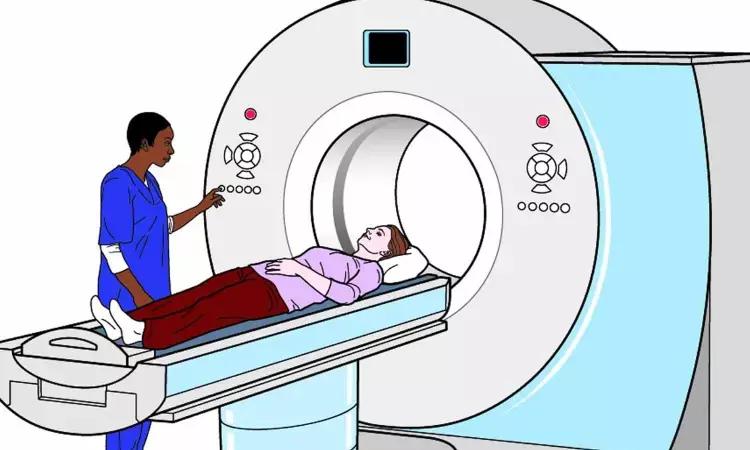- Home
- Medical news & Guidelines
- Anesthesiology
- Cardiology and CTVS
- Critical Care
- Dentistry
- Dermatology
- Diabetes and Endocrinology
- ENT
- Gastroenterology
- Medicine
- Nephrology
- Neurology
- Obstretics-Gynaecology
- Oncology
- Ophthalmology
- Orthopaedics
- Pediatrics-Neonatology
- Psychiatry
- Pulmonology
- Radiology
- Surgery
- Urology
- Laboratory Medicine
- Diet
- Nursing
- Paramedical
- Physiotherapy
- Health news
- Fact Check
- Bone Health Fact Check
- Brain Health Fact Check
- Cancer Related Fact Check
- Child Care Fact Check
- Dental and oral health fact check
- Diabetes and metabolic health fact check
- Diet and Nutrition Fact Check
- Eye and ENT Care Fact Check
- Fitness fact check
- Gut health fact check
- Heart health fact check
- Kidney health fact check
- Medical education fact check
- Men's health fact check
- Respiratory fact check
- Skin and hair care fact check
- Vaccine and Immunization fact check
- Women's health fact check
- AYUSH
- State News
- Andaman and Nicobar Islands
- Andhra Pradesh
- Arunachal Pradesh
- Assam
- Bihar
- Chandigarh
- Chattisgarh
- Dadra and Nagar Haveli
- Daman and Diu
- Delhi
- Goa
- Gujarat
- Haryana
- Himachal Pradesh
- Jammu & Kashmir
- Jharkhand
- Karnataka
- Kerala
- Ladakh
- Lakshadweep
- Madhya Pradesh
- Maharashtra
- Manipur
- Meghalaya
- Mizoram
- Nagaland
- Odisha
- Puducherry
- Punjab
- Rajasthan
- Sikkim
- Tamil Nadu
- Telangana
- Tripura
- Uttar Pradesh
- Uttrakhand
- West Bengal
- Medical Education
- Industry
MRI-guided adaptive radiation therapy for treating pancreatic cancer shows promising outcomes: Study

DETROIT: Treatment of locally advanced and borderline resectable pancreatic cancer using ablative Stereotactic MRI-Guided On-table Adaptive Radiation Therapy, also known as SMART, is safe and yields favourable patient outcomes. The Phase II prospective international multi-institutional study was the first to deliver ablative doses of radiation to patients with pancreatic cancer.
Patients treated at the Henry Ford Pancreatic Cancer Center (HFPCC) constituted approximately 25% of the study's participants.
"As a pioneering institution in the field of MRI-guided adaptive radiation therapy, Henry Ford Health is thrilled to have led this novel study, which was the largest international study of ablative radiation for pancreatic cancer in the world," said Ben Movsas, M.D., Medical Director of Henry Ford Health Cancer and Chair of Radiation Oncology. "Henry Ford was first in the world to treat a patient using the MRIdian MRI-Guided Radiation Therapy system back in 2017. Since then, we have treated many cancer patients with MRI-Guided Radiation Therapy."
The primary endpoint outcomes from the study were presented at the 64th Annual Meeting of the American Society for Radiation Oncology (ASTRO) by Parag Parikh, M.D., the Principal Investigator of the study and Director of GI Radiation Oncology and MR-Guided Radiation Therapy at Henry Ford Cancer.
"In this study, 136 patients were treated with ablative MRIdian SMART at 13 international centers," said Dr. Parikh. "The study's primary outcome measured grade 3 or higher gastrointestinal toxicity, such as nausea, vomiting or abdominal pain, in the first 90 days after treatment. The study's primary safety objective was met, with zero incidence of acute grade 3 or higher gastrointestinal toxicity definitively related to SMART treatment."
Secondary measures of the study include overall survival, local control, distant progression-free survival, and changes in patient-reported quality of life, Dr. Parikh explained. While study patients are still early in the follow-up period, preliminary clinical outcomes data of one-year local control (meaning the stopping of cancer growth) and distant progression-free survival (meaning the length of time during and after the treatment that a patient lives with the disease, but it does not get worse) were 82.9% and 50.6% respectively. One-year overall survival from diagnosis was 93.9%.
"Our HFPCC is committed to the pursuit of scientific breakthroughs that have the potential to change the paradigm of pancreatic cancer, which at present, has one of the highest mortality rates in comparison to other types of cancer," said David Kwon, M.D., Clinical Director of the HFPCC. "As relentless advocates for our patients, we offer the most advanced evidence-based therapeutic options available today. We remain steadfast in our belief that outcomes for patients with pancreatic cancer can and will continue to improve through global collaboration and critical research initiatives, such as this study."
Henry Ford Health Cancer is one of the largest cancer programs in Michigan, providing care at five hospitals, 11 outpatient facilities and hundreds of aligned doctors' offices throughout southeast and southcentral Michigan. Cancer experts at Henry Ford communicate seamlessly across the organization's multiple cancer treatment locations.
In total, nearly 27,000 patients have been treated with MRIdian. Currently, 54 MRIdian systems are installed at locations around the world, where they are used to treate a wide variety of solid tumors and are the focus of numerous ongoing research efforts.
References: Study shows promising safety, patient outcomes data for MRI-guided adaptive radiation therapy to treat pancreatic cancer ,American Society for Radiation Oncology (ASTRO) 2022 Annual Meeting.
Dr Kamal Kant Kohli-MBBS, DTCD- a chest specialist with more than 30 years of practice and a flair for writing clinical articles, Dr Kamal Kant Kohli joined Medical Dialogues as a Chief Editor of Medical News. Besides writing articles, as an editor, he proofreads and verifies all the medical content published on Medical Dialogues including those coming from journals, studies,medical conferences,guidelines etc. Email: drkohli@medicaldialogues.in. Contact no. 011-43720751


